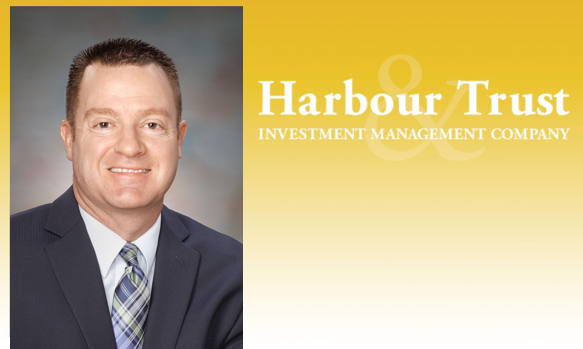
Mike Hackett, Vice President & Trust Officer has experienced the volatility of the financial markets since his career began in 1993. Mike has earned numerous professional designations and continues to maintain his education and expand his knowledge for the betterment of his clients and co-workers. Recently, Mike was contacted by the Chicago Tribune to add his insight to the subject of “emotional investing”. Check out his advice by clicking here or read more.
Follow Reason, no emotions, when it comes to retirement.
The answer rests in our very human tendency to make emotional, rather than reasoned, decisions. Faced with a tanking stock market, many investors panic and sell out of stock positions, locking in losses. Confronted with a soaring market, many greedily purchase stocks at nosebleed levels, right before a market correction sends prices slaloming.
Those investors who typically fare best in the long run, ultimately savoring more-than-adequately-funded retirement portfolios, are the very people able to focus the most dispassionate eye on their financial goals. With the right strategies, you, too, can be among those with clear-eyed, objective, unemotional approaches to investing.
Three investor types
“Everyone experiences emotions when dealing with money,” says Michael Hackett, vice president and trust officer with Harbour Trust Investment Management Company in Michigan City, Indiana. “Even professionals do. We say we’re unemotional, long term-investors. Then why do we all turn on CNBC to find out what the jobs numbers were?”
Laurie P. Barry, CFP, wealth advisor and senior vice president in wealth management with UBS in Chicago, has seen her clients fall prey to fear and greed. “Emotion can hamper their preparedness because they veer off track,” she says. “(Investors) listen to outside distractions when they should be paying attention to their plans. They may see something on TV or on the Internet… Or their co-worker may be moving something around in their portfolio because they’re nervous, and convince them to do that too.”
According to Chris White, CFA, senior portfolio manager at Hemenway Trust Company in Salem, N.H., and author with Richard Koonce of “Working with the Emotional Investor,” we all deal with two kinds of worlds. They are the low-stakes, everyday world, and the high-stakes world. Investment decisions are considered part of the high-stakes world.
“In high-stakes decision making, people’s worst inclinations come to the fore,” White says. “They tend to make decisions that are very damaging to their own personal interests. If they were to step back from the ledge, they would make saner decisions. But they are so terrified. They begin to feel if the market goes down there will be nothing left. They will lose everything. And that triggers their dark zone.”
High-stakes behaviors should be viewed, White says, in the context of three broad investor types: protectors, fixers and survivors. “Protectors in the low stakes are protective, but as the stakes rise, there’s an anxiety that develops,” he reports. “They feel powerless, often will blame others and play the role of the victim. When it comes to investment decision making, they often sell at the bottom.”
Fixers in low-stakes times are charming and magnetic, White says. These people have “can-do” personalities. Many CEOs are fixers. “But as tensions rise, and we move into high stakes, the fixer gets controlling, manipulative and abusive,” he adds. “The fixer always has to win. He’ll do anything to win… Feeling he has to win at any cost, when the market sells off he will buy too early, try to catch a falling knife and get cut.”
By contrast, survivors are wrapped up in their own worlds, generally unaware of how their investments are faring. Survivors often adhere to their past investing approach, even after sound philosophy would suggest changes should have been made.
“Fear and greed are both exhibited in high-stakes situations,” White says. “Greed will be exhibited more often by the fixer, fear more often by the protector. And the survivor doesn’t necessarily exhibit either one, but in being unaware damages his own interests.”
Staying unemotional
Becoming an unemotional investor starts with avoiding blaring stock market headlines and sound bites.
“I can’t tell you how often I’ve gotten calls from fixer and protector clients who’ve been watching CNBC; I can hear the program in the background,” White says. “And I say, ‘Turn that thing off!’ The absence of that stimulation lets us move out of the dark zone high stakes and back into the light zone low-stakes world.”
Ensuring proper asset allocation is another way to stave off emotions. “If you have enough assets outside the market, now you’ve got your cushion to live off,” Hackett says. “People sell at the wrong time because they didn’t have the right amount in stocks to begin with. So ask yourself, ‘Am I in the right allocation?’ If it is the right allocation, you never have to sell at the wrong time. And you can ride out the downturns.”
Maintaining wise counsel can also prevent you from making emotional decisions you’ll come to regret. “Listening to a trusted advisor or a team of advisors (is) a great way to maintain the course that will help you reach your financial goals,” Barry says. “If you have people around you like a CPA, financial advisor and attorney, you tend to make very good decisions, stay true to your financial plans and keep the emotions out of it. Having a team and having a plan are two of the biggest things you can do to help you stay unemotional.”
The best suggestion may be to know yourself, White says. “No one is really all one type, fixer, protector or survivor,” he observes.
“I’m predominantly a protector. And I can feel it in my stomach and back and begin to feel powerless when I get into the dark zone. When that happens, I know myself well enough that I know I need to take a deep breath, acknowledge emotions are at the fore, calm down and make a more rational, quantitative-based decision.”




